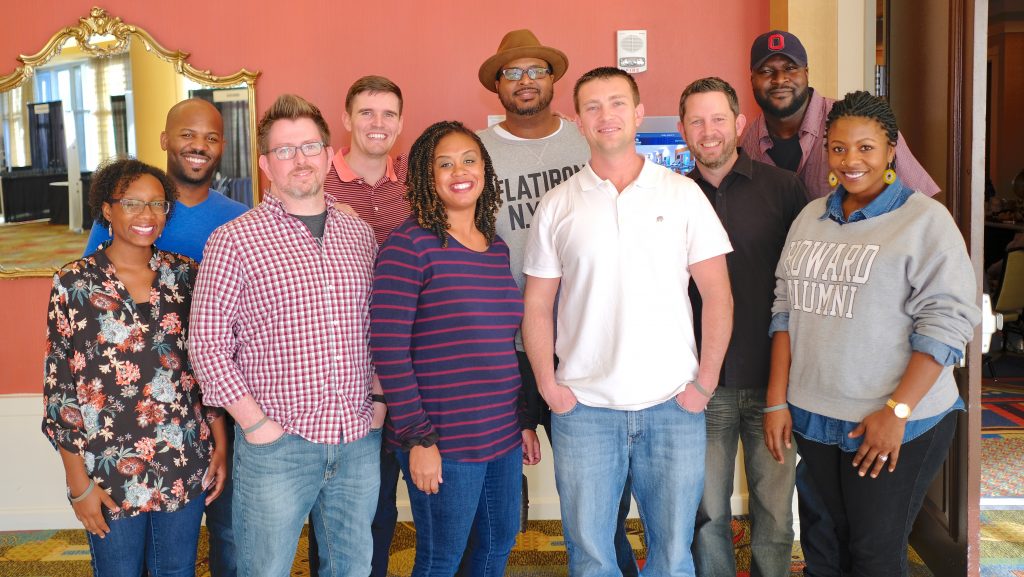(post by guest author Dan Mackett, bio below)
In one way or another, every person has been affected by COVID-19’s impact on the economy. Some have lost jobs, others have jobs but are continually worried their job will be cut next, and then there are leaders simply trying to make it to the other side. All of these situations present unique challenges, along with Gospel opportunities.
Over the past few weeks, God has tilled the soil of many unbelieving hearts through the fear of a virus. With increasing measure, people are considering the reality of death as the thin veneer of our sense of control has been ripped off. A fearful, anxious heart is fertile soil on which to scatter gospel seed.
A gospel-shaped person in the marketplace is counter-cultural in how they approach their work, and specifically the people with whom they work. Their coworkers aren’t just products to be managed, they are image-bearers who have eternal destinies with or apart from Christ. As marketplace saints who spend at least 40% of our waking hours at work, now is the perfect time to leverage our relationships for evangelism.
But, how? Let me offer a few suggestions.
- Pray often and specifically.
Pray before, during, and after work. Ask God for wisdom, for help, and for fruit in your ministry at work.
Pray for your coworkers by name. Ask God to open doors to proclaim the gospel and strengthen you in commending the Gospel.
Are you sending an email to an unbeliever? Pray for them as you send it. You may be the only person on earth who is praying for them to come to know Christ.
While you’re at it, pray for other members in your church. Ask them to share the names of people they are witnessing to and ask them how their evangelism is going. Encourage and challenge one another with accountability. Help each other remember that our work week is about more than just getting a paycheck, it’s ultimately about helping those around us see Christ.
- Ask good questions.
Think about recent interactions with your coworkers. Did you ask many non-work related questions? Do you know the names of your coworkers’ spouses and children? Do you know where they live, what they like to do, how they spend their time? Asking personal questions is a great place to begin evangelistic ministry.
If you already know the basics about your coworkers, are you asking them heart-level questions?
- How are you doing with everything going on with the virus?
- What’s been difficult in this season for you and your family?
- Have you experienced increased levels of anxiety or stress? If so, how are you dealing with it?
- How can I pray for your family? Is there anything I can do to help?
- Are any of your family members or friends suffering from the virus? If so, how are they doing? How are you doing? Can I pray for them right now?
These questions will often lead to opportunities for the gospel to be proclaimed.
If you’re on Zoom calls all week like I am, are you the first one to hop off a meeting or are you staying after to ask people how they’re doing? Are you scheduling non-work related zoom meetings with your coworkers to hear how they’re doing and how you can pray for them? Working from home can be a very isolating and lonely experience for someone. Go out of your way to make them know that they are seen, known, and loved. It will pave the way for gospel seeds.
Asking good questions gives us insight into the souls of our coworkers and shows them that we care for them more than just for what they do, but for who they are.
- Give honest and hope-filled answers.
If a non-believing coworker asks you how you’re doing, be honest. Acknowledge the anxiety in your heart. But also, tell them how you’re dealing with that anxiety. Maybe say something like, “You know what Bob, I am pretty anxious these days. I’m prone to dream up all the bad that could happen to my family. But, though I’ve been anxious, I’ve found great comfort in the psalms in the Bible. They’ve reminded me that God wants me to bring my cares to Him and He’s not mad when I do. And, they’ve shown me the truth of who God is, that He is good, sovereign, and has secured my future with Him because of what His son Jesus did for me. It has brought me peace in this time of uncertainty.”
If your coworker opens up to you about their stress, their anxiety, and their worry about life and the impacts of the virus, acknowledge their feelings but redirect them to the truth of God’s word. Tell them that God is a God who not only wants to bear our burdens daily (1 Peter 5:7), but also He is one who wants to bear our ultimate burden (sin) through Jesus’ finished work on the cross (1 Peter 2:24-25, 3:18). Tell them that God often uses awful and hard situations for good (Romans 8:28; Ephesians 1:11). Show them from Scripture and give them examples from your own life.
Be honest, be hope-filled. “But in your hearts honor Christ the Lord as holy, always being prepared to make a defense to anyone who asks you for a reason for the hope that is in you; yet do it with gentleness and respect (1 Peter 3:15).”
- Be bold.
As you pray, ask questions, and give honest and hope-filled responses. Be bold and leverage them for clear gospel proclamation. While you need to use wisdom based on the nature of your relationship, tell them that there is no ultimate hope in a COVID-19 vaccine. Hebrews 9:27 tells us that “all are appointed to die once and then will face judgement.”
Every person’s ultimate need is a ‘vaccine’ with which they can face the judgement of God. The blood of Christ Jesus is the only vaccine for sin. And when they die, if they haven’t trusted in the blood of Christ to cure their sin, they will face an eternally worse punishment than a few months of social distancing, they will be forever distant from God and His people in hell.
You could also say something like this: “I hope and pray for a vaccine, but if we can’t find one, I rest assured that a vaccine does not reconcile me to God, Christ Jesus has.” Or… “I hope and pray they find a vaccine soon. But if they don’t, I’ve found ultimate peace in Christ Jesus, who has secured my eternity with God in Heaven through His substitutionary life, death and resurrection.”
Each of these applications will look different depending on the context. Plead with God for wisdom in how to best carry them out with the people He has put around you. He will guide you. Let the Spirit give you insight into when to push in and be bold and when to simply listen and respond in hope. But, do plead with God for wisdom and do apply them to your life.
We will all have moments of discouragement, disobedience, and despair when proclaiming Christ in the workplace. But when these come, look back to Calvary. Remember that, “He became sin who knew no sin so that we might be His righteousness” (2 Corinthians 5:21). Jesus has already gone before you and purchased you with His blood, rest in it and be emboldened by it.
God has used the coronavirus to ready the soil of unbelieving hearts to hear the gospel. For most Christians in the marketplace, now is the time to leverage our work for evangelism.
A final word for pastors:
- How are you spurring evangelism in the life of your congregation right now?
- How are you equipping your flock to maximize gospel opportunities with coworkers?
- Teach them, train them, pray for them, celebrate wins with them, and hold them accountable for the ministry you’ve been called to equip them for.
To brothers and sisters who may be out of work as a result of COVID-19, I pray God’s grace is meeting you in increasing ways and you’re learning to trust Him as Provider. And, as you pursue job opportunities, consider how you can be counter-cultural in the way you go through the application process. Pray all the more for your interviewers, be a hopeful rather than an anxious presence, and sow the seeds for future gospel conversations if He opens that job opportunity for you.
To the saints in the workplace, pray, ask, give hope-filled answers, and be bold in evangelism.
May God strengthen all of us to share the hope of Jesus in increasing ways for His glory and the salvation of the nations.
Dan Mackett and his wife Alyssa, with their son Jones, live in Alexandria, VA and are members at Del Ray Baptist Church. Though Dan works full time at IJM as the Director of College Mobilization, he is in the process of starting Redemption Collective, whose mission is to launch businesses that optimize real estate for church outreach and financial sustainability. Connect with him through email at dan@redemptioncollective.org.








